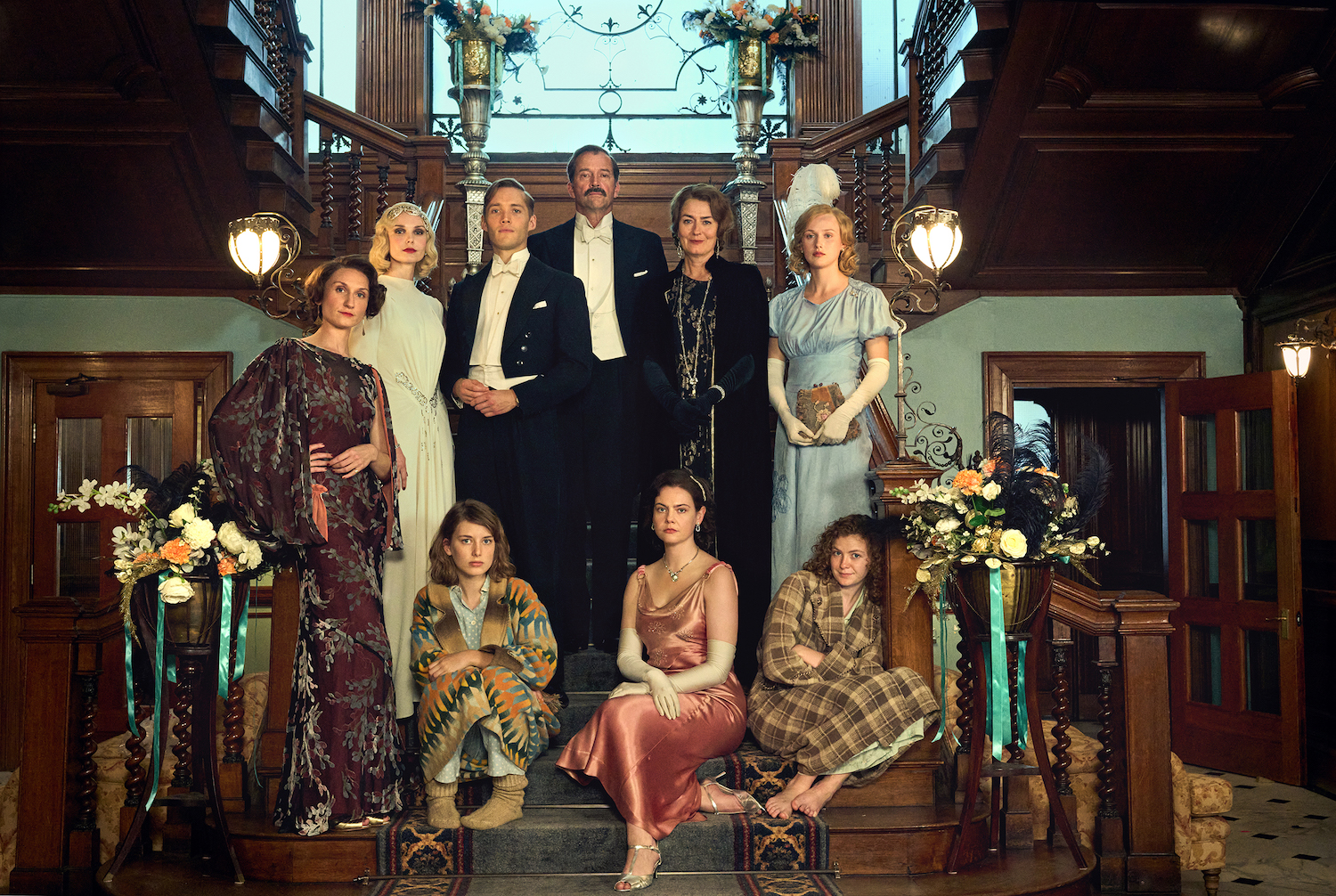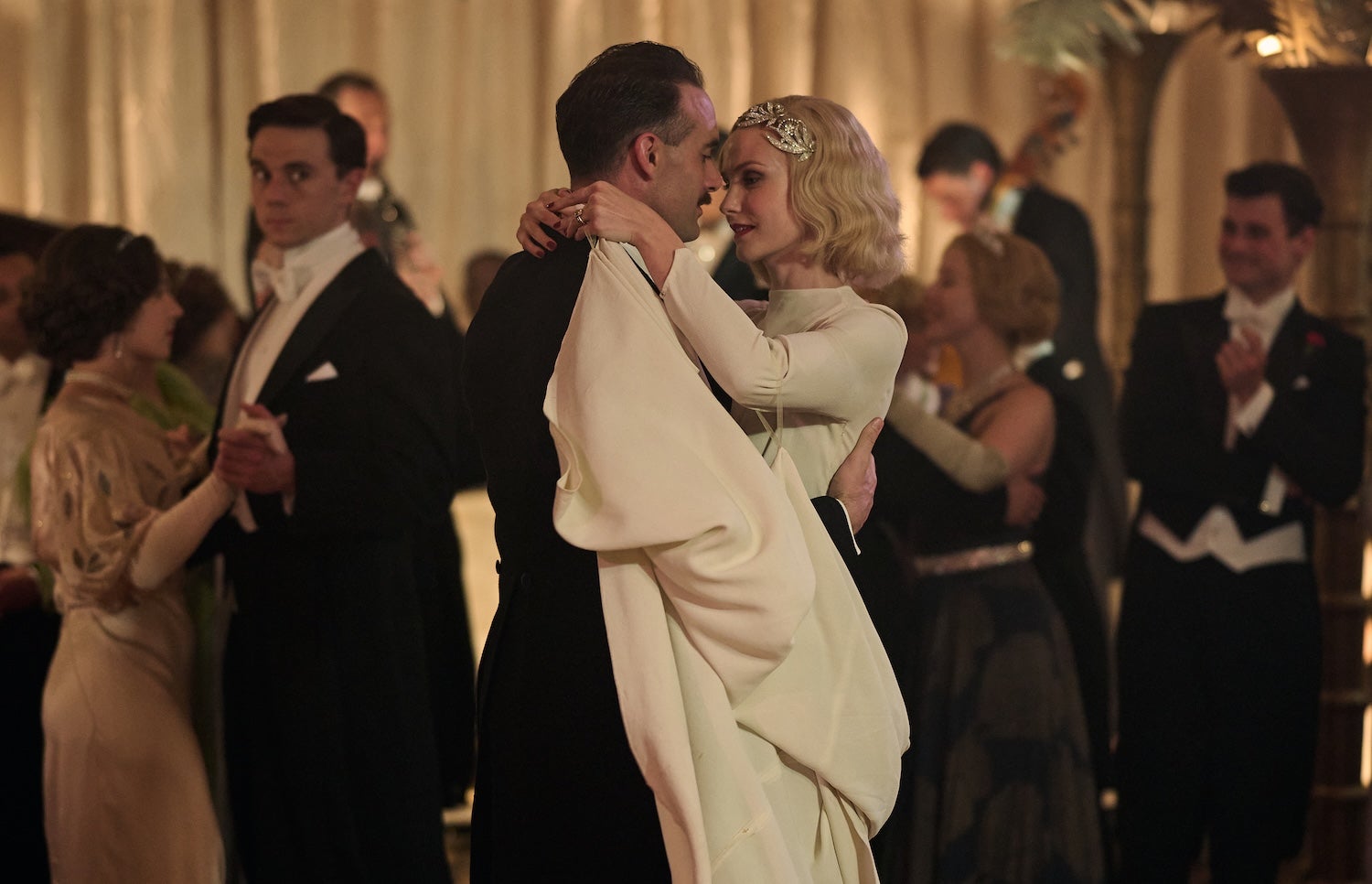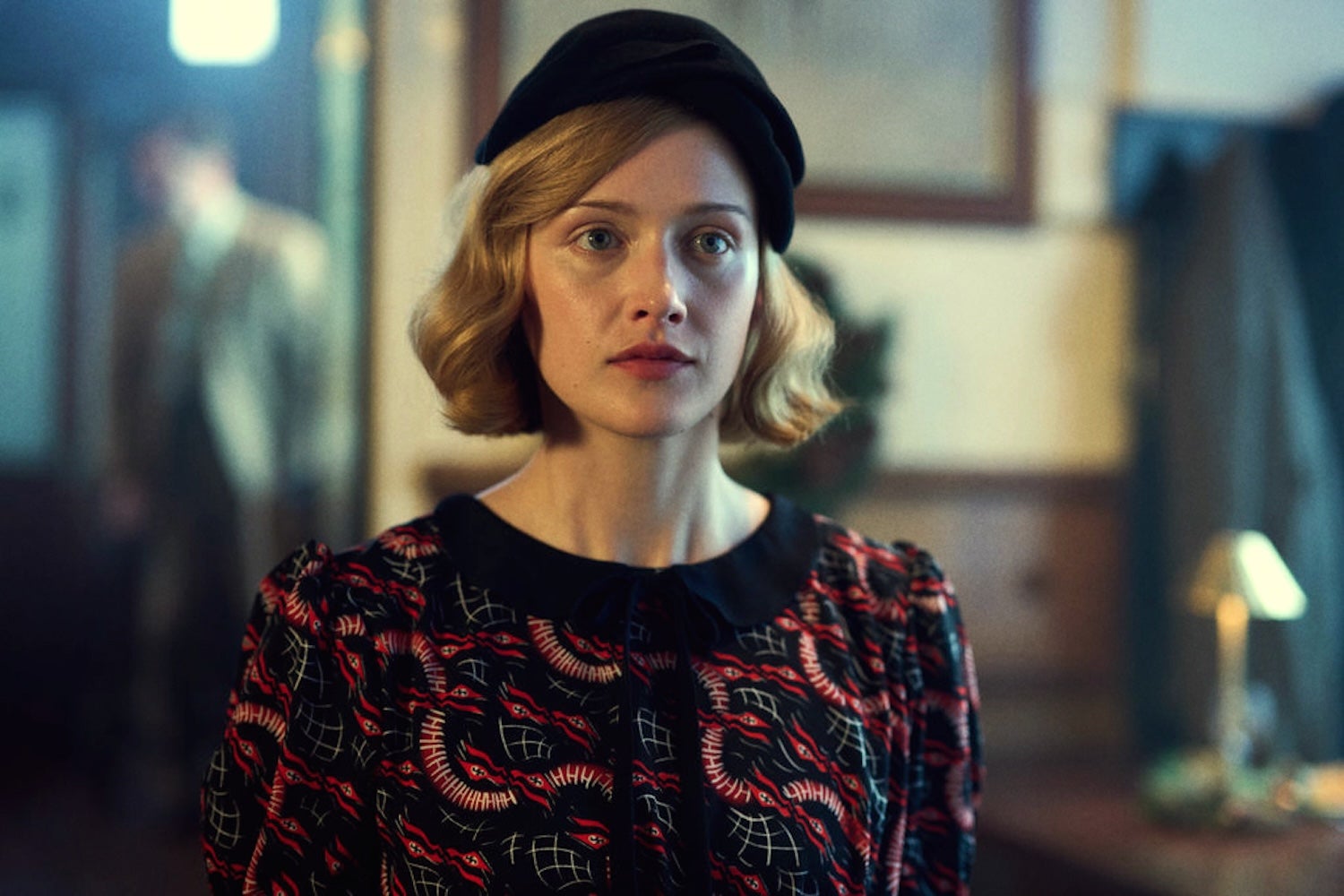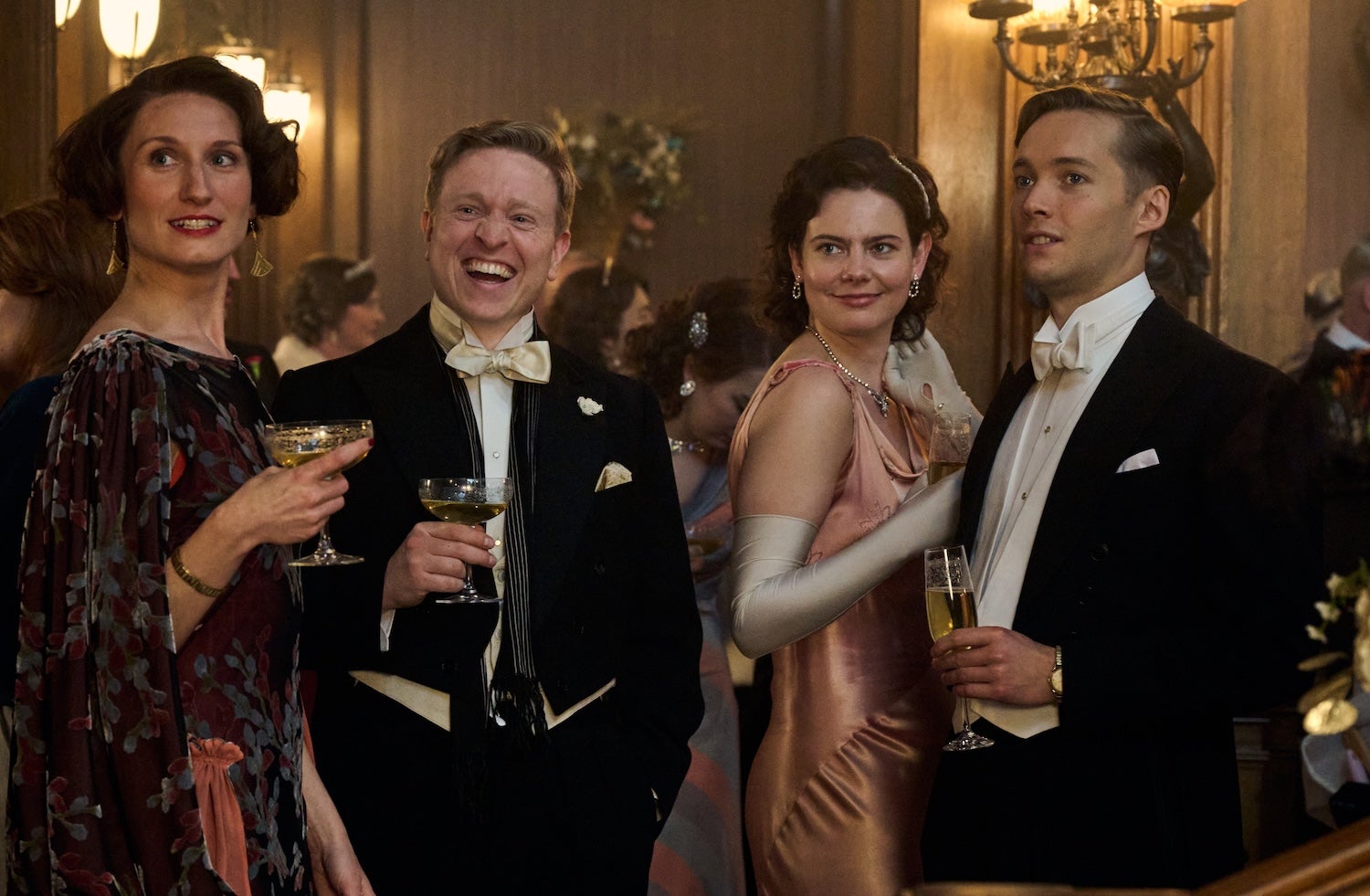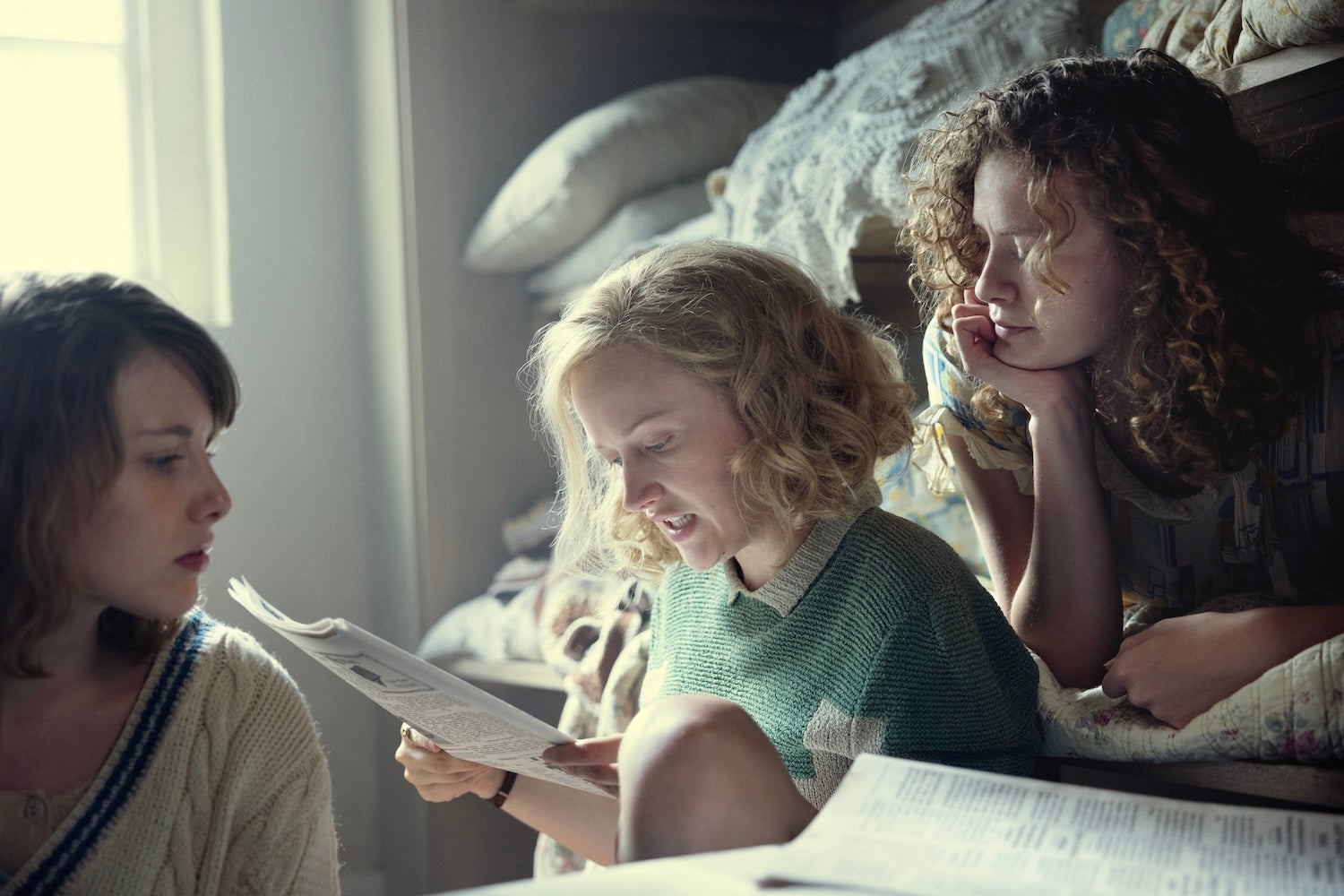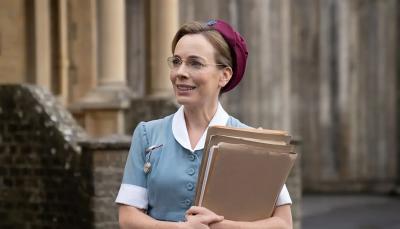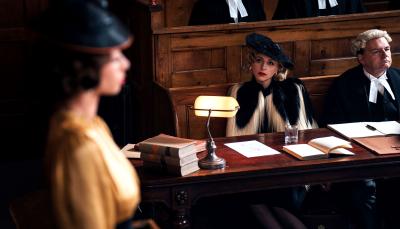The 'Outrageous' Creators on the Infamous Mitford Sisters & Season 2 Ideas
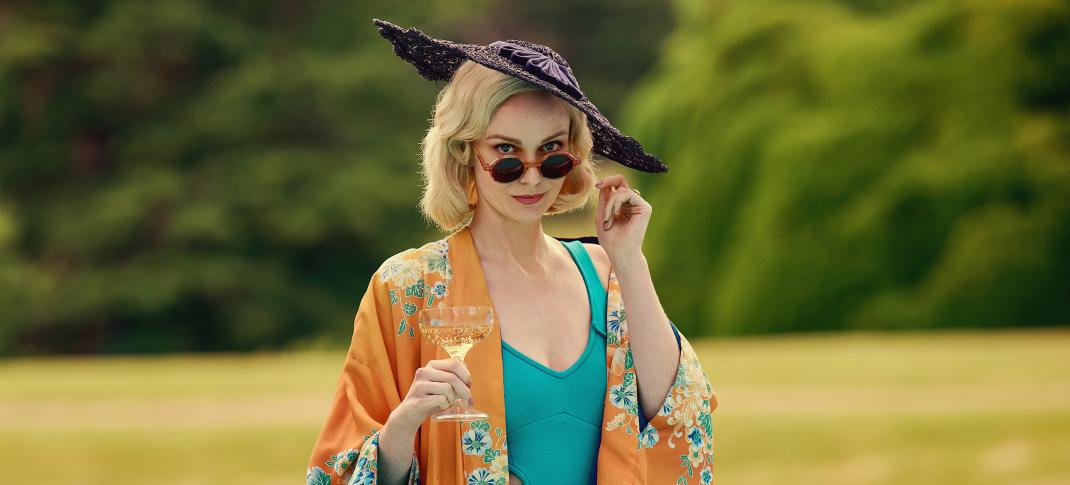
Joanna Vanderham as Diana Mitford in "Outrageous"
(Photo: BritBox)
BritBox’s Outrageous is, first and foremost, a period drama. The six-part series recounts the lives of the six Mitford sisters, a group of women who captured the imagination of 1930s Britain due to their polarizing politics, shocking behavior, and high-society connections. But, despite its early 20th-century setting, the series feels surprisingly modern and almost painfully timely with its questions about agency, authoritarianism, and politics-driven family strife.
Inspired by Mary Lowell’s book, The Sisters: The Saga of the Mitford Family, the series not only highlights the ways each of these women was determined to forge her own path during a tumultuous time period, but were more than the caricatures they’re most often remembered by. Yes, history often refers to the siblings as Nancy the Novelist, Diana the Fascist, Jessica the Communist, Unity the Hitler-lover, Deborah the Duchess, and Pamela the poultry connoisseur, but in the world of this series, they are much more than that. (And rightly so)
Outrageous certainly doesn't shy away from presenting the difficult or even frequently heinous views of some of the Mitford women, but the series also never forgets that these characters are more than their most scandalous deeds, leaning into the complicated relationships between the siblings in ways that often cross political and familial boundaries.
Telly Visions had the opportunity to sit down with Outrageous creator Sarah Williams and Executive Producer Matthew Mosley to discuss bringing the Mitford family to life, from the inspiration behind the series to balancing its most outlandish and emotional elements on screen.
The following interview has been edited for length and clarity.
Telly Visions: The Mitford sisters led truly crazy lives. But a lot of people—and certainly not here in America—don’t really know much about these women or their scandals. What in particular drew you to this family and made you want to tell their story?
Sarah Williams: It was a passion project of mine for a long time, but I was finding no traction at all with British TV channels. Can you believe it? I mean, come on — it’s a great, great story. But then I did. I met Matthew and Liz [Killgariff] at Firebird [Pictures] and they got it. They absolutely got it.
Matthew Mosley: In the U.K., it’s probably a bit different because a lot of people have heard of the Mitfords. They don’t necessarily know loads about them, but they’ve heard of them. Nancy’s books are very well known and have always been in print, and they’re very popular. And I think there’s this idea that we know the story of who they were, because Nancy’s books are sort of lightly fictionalized versions of the real family story, aren’t they? So people know bits and bobs from The Pursuit of Love.
But then Sarah came along and pitched the story to us, and we realized it was all so much richer, deeper, and so much more extreme and extraordinary than we had realized. The show’s called Outrageous because there’s so much going on in it: This incredible family, these sibling rivalries, betrayals, marriages, affairs. We felt like we had to go on the journey with Sarah.
TV: There’s just so much going on in this story. How important was it for you to find a way to balance the story of these sisters and their relationships with the scandals in their lives and the external events surrounding them? I mean, one of them was best friends with Hitler.
Williams: Really early on, I decided to tell the story as a family saga. There is a lot going on, but the family is right at the heart of it. And I tried to take an even-handed approach to all the characters in the story — as bizarre as that might seem, you know, when one character does become Hitler’s friend. But it’s ultimately still trying to get under the skin of the other characters as well, and explore how they react rather than letting that one fact take over the story.
Mosley: I think we had to be very ruthless about how we told the story. We had to focus it totally on the sisters and their relationships. There are so many—these women were extremely well-connected. There are so many characters we could have brought into this story, but we had to really prune it back and keep the focus on the sisters, because that’s how we find our way through everything else. It’s what gives the show its focus.
TV: There’s a famous saying that history doesn’t repeat itself, but it often rhymes. This show, in large part, recounts the rise of fascism in 1930s Europe, and it’s being released during a moment when authoritarianism is on the rise in many places around the world. It’s a historical period piece that manages to feel both timely and relevant to our current context. How did you decide to frame this story for a modern audience?
Mosley: It’s interesting because when Sarah pitched us the idea originally, we were experiencing the aftermath of Brexit, which really shook the U.K. and divided families because people were on different sides of the argument in the same family. This idea of a family torn apart by ideas and rival political ideologies felt particularly relevant to us at the time. However, I think that as we’ve gone through the process of making the show and bringing it to the screen, it just becomes increasingly timely in a way. It was, in a way, an accident, but it’s also a fascinating and kaleidoscopic way of exploring the 1930s, a period when traditional institutions were looking shaky and new ideas were emerging.
Williams: And viewing that time period through the prism of this family — I think there are a lot of families around today who are arguing, who are having horrific family dinners where it’s don’t mention politics. A few days ago, the British Prime Minister was talking about getting Britain “battle-ready,” and you’re thinking… what do we do? But that is also where they were in the 30s. All the talk was: Will there be a war? Will we have another? And, of course, they’ve just come out of the huge war. They’d lost a whole generation in the First World War, and the last thing anyone wanted was another war, and suddenly we’re talking about war again. It’s terrifying, isn’t it?
TV: On the subject of the sisters being at odds with each other, I’m really fascinated by the ways that they, Jessica and Unity, for example, or Nancy and Diana, love one another so desperately and yet are just completely at odds about how the world should work.
Williams: I think that the key question that the whole series asks is: Can you love someone and hate their politics? For Unity and Jesisca, there’s one answer, and for Nancy and Diana, there’s perhaps a very different answer. But I do think it’s a question that everyone, well, maybe not everyone, but an awful lot of people, are navigating within their own families. How do you hang on to those bonds? Is there a way to try to understand one another better? It’s very immediate stuff, isn’t it?
TV: The show doesn’t make Diana and Unity into caricatures. It doesn’t lessen the horrific things they think and believe and say, but they’re not overt villains either. How did you find that balance in telling these stories? Because there’s a version of this show where it would have been really easy to let the audience hate them, but that’s not at all what happens here.
Williams: That was really important to us early on, to see them as complex human beings and not just write them off as evil. Isn’t it more interesting to understand how they got there? What we’re trying to do, I think, is to see how people become extremists. What draws them to those extreme positions? Who are they trying to impress, or what part of their soul are they trying to replace? What lost bit of themselves are they trying to find?
I think it’s a really complicated set of reasons why people might be drawn in those directions. For these women, I think sibling culture plays a significant role. We have to ask, if Diana hadn’t left Brian [Guinness, her first husband] and devoted her life to Lord Mosley, would Unity have gone to Germany and stalked Hitler? If Unity hadn’t done that, would Decca have gone off to — which we would have her do in Season 2 — join the Spanish Civil War and fight with the communists? There is a bit of, do they egg each other on, in a way.
Mosley: Sarah and I are both from families where there are six siblings, so we’re kind of experts on this kind of family dynamic [laughter]. But it is something that fascinates both of us.
TV: Then there’s Nancy in the middle, who is the most normal one of the group. Well, normal for a given value of normal, anyway, in this particular instance. How did you know that you wanted to use Nancy as the anchor for everyone else? Is it because she’s the author, the storyteller of the group? Where does she fit into the tapestry of this family for you?
Williams: All those reasons, honestly. I felt that we needed someone we could relate to. I think she is the most relatable. She’s got a pretty modern private life, in the sense of — she’s a bit of a hot mess. She’s perhaps the least controlled and contained of them all, but we know she feels things very deeply. We know she’s the writer, she’s the family observer, the family chronicler, and she’s politically pretty neutral. She becomes politicized throughout the first series; you feel she’s being forced to do so.
Mosley: I think that, with having six main characters all with their own vibrant stories, we needed to find a way through where you know you’re bringing the audience with you. And I think that’s one of the clever things that Sarah did with the script, is to put Nancy at the center and have her almost narrate a little bit what’s happening and where we are. We do go into the other sisters’ worlds, but Nancy always sits at the center.
Williams: She’s narrating from a point of view after the Second World War. So she can say, of course, with hindsight, we didn’t know then what we know now. We had no idea where this would all lead.
TV: For my last question, rapid-fire style: Favorite Mitford sister?
Williams: Nancy.
Mosley: Oh my gosh, I…
TV: I know, it’s probably like asking who’s your favorite child
Williams: [To Mosley] You’re a Tom. You are a Tom. Everyone loves Tom.
Mosley: I mean…I suppose watching the series, Jessica is another person that jumps out at you, because while she goes to her own political extreme, there is a care and a concern for the world there, which is really admirable in her. They all have that element to a certain extent, but Jessica’s a little bit more in touch with the grim realities of what was going on at the time.
New episodes of Outrageous stream Wednesdays on BritBox.

